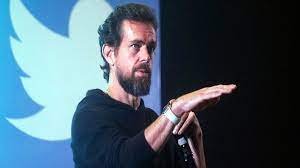In a recent interview with the YouTube channel Breaking Points, former CEO of Twitter, Jack Dorsey, made startling allegations against the Indian government regarding their treatment of the social media platform. According to Dorsey, the Indian government made a series of requests to Twitter, specifically concerning the farmers’ protests and journalists critical of the government’s policies. He further claimed that these requests were followed by pressure tactics and threats of raiding Twitter employees.
Dorsey’s revelations shed light on the challenges faced by social media platforms in navigating the complex relationship with governments, particularly in the context of freedom of expression and political dissent. The farmers’ protests, which began in late 2020, became a significant issue in India, leading to widespread demonstrations against contentious agricultural reforms. As social media played a crucial role in disseminating information and mobilizing support for the protests, it became a key battleground for government control.
According to Dorsey, the Indian government’s requests to Twitter were aimed at censoring or moderating content related to the farmers’ protests and journalists critical of the government’s actions. Such requests raise concerns about the limits of free speech and the ability of platforms like Twitter to maintain neutrality while operating in different countries with diverse political landscapes.
The former Twitter CEO’s claims about pressure tactics and threats against Twitter employees further highlight the extent to which governments are willing to go to assert control over social media platforms. While Dorsey did not provide specific details about the nature of the pressure or the individuals involved, his allegations underscore the challenges faced by tech companies in balancing their commitment to free speech and their obligations to comply with local laws and regulations.
It is important to note that these allegations come at a time when social media platforms, including Twitter, are facing increased scrutiny and criticism over their handling of content moderation and their influence on public discourse. Governments around the world have been grappling with how to regulate social media platforms, often seeking to strike a balance between protecting public safety, promoting free speech, and preventing the spread of misinformation.
The allegations made by Dorsey raise important questions about the role of governments in influencing and pressuring social media platforms. While governments have legitimate concerns about maintaining law and order and preventing the spread of harmful content, it is essential to ensure that such concerns do not infringe upon individuals’ right to express their opinions and participate in public discourse.
These allegations also underscore the need for greater transparency and accountability from both governments and social media platforms. Clear guidelines and processes for content moderation, as well as mechanisms for addressing government requests, can help promote a more open and responsible approach to managing online content.
In response to Dorsey’s allegations, it remains to be seen how the Indian government will address the concerns raised. As the relationship between governments and social media platforms continues to evolve, it is crucial to find a balance that respects freedom of expression while addressing legitimate concerns related to public safety and security. The future of online discourse and the ability of social media platforms to facilitate open and inclusive conversations may depend on finding this delicate balance.


